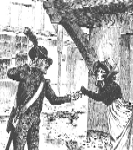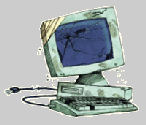

 |
INTELLIGENCE |
 |
This game is designed to sink the player fully into the pea-soup fog of war. Not only do you not know where your opponent is and what his strengths are, you cannot be certain of the location and strength of your own forces at any given moment. If the units are not within your personal sight then anything you believe about their status is potentially out of date. The only way that you can manage in this environment is to gather information from as many sources as possible and try to piece the snippets of information together to achieve enough of a picture that you can have the confidence to act. With this in mind, it is important to know what intelligence gathering sources are available to you.

|
PARADES |
|
|

| STATUS REPORTS |
|
|

|
CORRESPONDENCE HISTORY |
|
|

|
PIQUET REPORTS |
|
|

| CONTACT! |
|
|

| PAUSE FOR BATTLE |
|
|

| RUMOURS |
|
|

| SPIES |
|
|

| MESSAGES |
|
|

|
NEWS REPORTS |
|
|

|
LINES OF COMMUNICATIONS |
|
|

| MECHANICS |
|
|

|
CONFUSION REPORTS |
|
|

| NAVAL INTELLIGENCE |
|
|